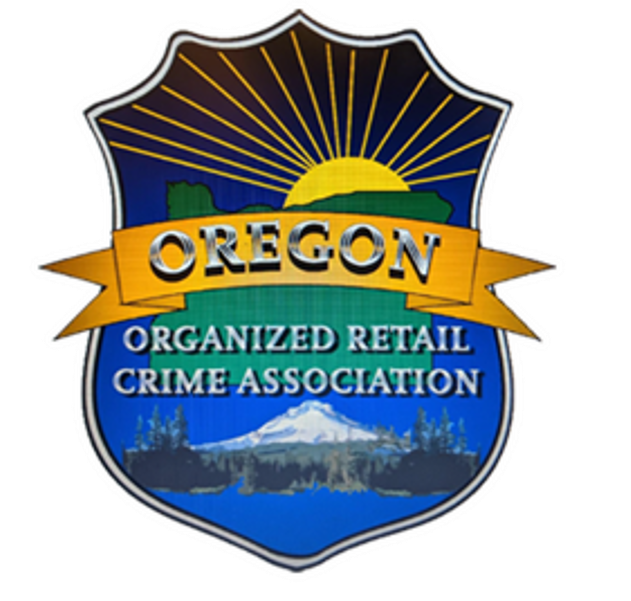Task Force Plans To Lead Communication And Collaboration Between Retailers, Law Enforcement, And Prosecutors
Lake Oswego, OR – September, 2022 – The Northwest Grocery Association (NWGA), Oregon Business and Industry (OBI) and Organized Retail Crime Association of Oregon (ORCACOR), announce the creation of an Oregon-based Organized Retail Crime Task Force, which includes key stakeholders Oregon District Attorneys Association (ODAA), United Food and Commercial Workers (UFCW) Oregon Attorney General Ellen Rosenblum, and SnowShoe, a leading company in technical solutions deployed at stores across the nation.
SnowShoe CEO Ned Hayes is one of the retail stakeholders who has volunteered to help lead this state-wide effort. “Retailers are the lifeblood of our state and our nation, and we are joining with law enforcement nationwide to make the retail experience safer for both retailers and their customers. We are proud to be part of this unified effort.” SnowShoe provides technically advanced retail loyalty solutions nationwide, and Ned Hayes joins the task force through his work with the Technology Association of Oregon.
“Organized retail crime is not petty theft. It’s a multijurisdictional coordinated scheme that annually costs retailers and consumers billions of dollars. More importantly, the products being stolen are the products that customers need most available that include family necessities like baby formula and laundry detergent,” said Amanda Dalton, NWGA President. “NWGA is grateful to task force members, especially law enforcement and prosecutors that keep our communities safe.”
The task force plans to spark increased communication between retailers, law enforcement, and prosecutors. This collaboration will help identify common challenges, share information, and identify organized criminal networks that are stealing and reselling billions of dollars of stolen product.
“These crimes are hurting Oregon customers and if left unchecked will ultimately result in higher costs and reduced products on shelves,” said Paloma Sparks, OBI Vice President, Public Policy and General Counsel. “All at a time when supply chains are already near their breaking point.”
In addition to the financial damages to retailers and consumers, organized retail crime is a threat to workplace and consumer safety. Although most retailers strongly discourage employees from direct engagement with shoplifters, employees can unknowingly engage with individuals involved in organized retail crime and risk brazen attacks from potential thieves.
“The recent tragedy in Bend, Oregon underscores that grocery and other retail workers are consistent targets of workplace violence, whether shootings, theft, or other risks,” said Michael Selvaggio, a lobbyist with the United Food and Commercial Workers (UFCW) Local 555. “Increases in violent incidents, both high and low-profile, are putting employees’ safety at risk.”
Consumers’ safety is at risk when pawn shops, online fencing operations, and individuals resell products to consumers with altered labels or that have not properly been stored.
“Organized regional and transnational groups have formed criminal enterprises to commit a variety of financial crimes. These include identity theft, public aid fraud, cargo theft, money laundering, credit card, and bank fraud,” said Jeremy Girard, President of the Organized Retail Crime Association of Oregon. “ORC and related organized crime syndicates cost legitimate businesses, American taxpayers, and our government billions of dollars per year.”
Organized criminal enterprises often operate in the form of semi-legitimate businesses that commit an ongoing and diverse series of these crimes. Each of these enterprises is connected to numerous other similar criminal enterprises that work together as a conspiracy to commit these crimes.
“This private/public partnership created by the task force is critical to combatting increasing organized retail crime,” said Michael Wu, Executive Director of the Oregon District Attorneys Association. “ODAA values collaboration with retailers, public safety, and our community for a system-wide approach to combating organized retail crime.”
The task force will meet monthly beginning on September 20th, and in addition to increased communication and collaboration, will work with the Oregon Attorney General’s Office and other elected officials to draft and recommend an organized retail crime legislative agenda.
“Organized retail crime has, unfortunately, hit Oregon big time! This is not your petty shoplifting, but sophisticated criminal rings that steal large amounts of merchandise, often store it in giant warehouses, and resell it online,” said Oregon Attorney General Ellen Rosenblum. “I am glad to be a part of a coordinated statewide approach that will take advantage of resources from both the public and private sector. I look forward to Oregon DOJ’s participation on this important task force.”
## #
About the Northwest Grocery Association
NWGA serves as the leading advocate for the grocery retail and supplier industry in the Pacific Northwest, representing Washington, Oregon and Idaho. Collectively NWGA retail members employ more than 37,000 at more than 340 locations across Oregon. Our membership includes the retailers, wholesalers, brokers, manufacturers, and suppliers that support the Pacific Northwest’s grocery industry.
About Oregon Business & Industry (OBI)
OBI is Oregon’s most comprehensive business association, representing over 1,600 members who employ more than 250,000 Oregonians. OBI members come from all industry sectors and all parts of Oregon, and more than 80% of OBI’s members are small businesses. OBI also serves as Oregon’s affiliate for the National Retail Federation and National Association of Manufacturers.
ORCAOR has rapidly become the leading advocate for retailers being impacted by theft and ORC in Oregon due to its unique private and public partnership design. Having begun operating in 2019 by corporate investigators, law enforcement, crime analysts, and prosecutors, ORCAOR’s intuitive approach to fighting organized retail crime has resulted in a significant shift in public focus. With over 150 law enforcement partnerships and representation from over 75 major retail corporations across Oregon, ORCAOR is now at the forefront of bridging the private and public sector gap. |
